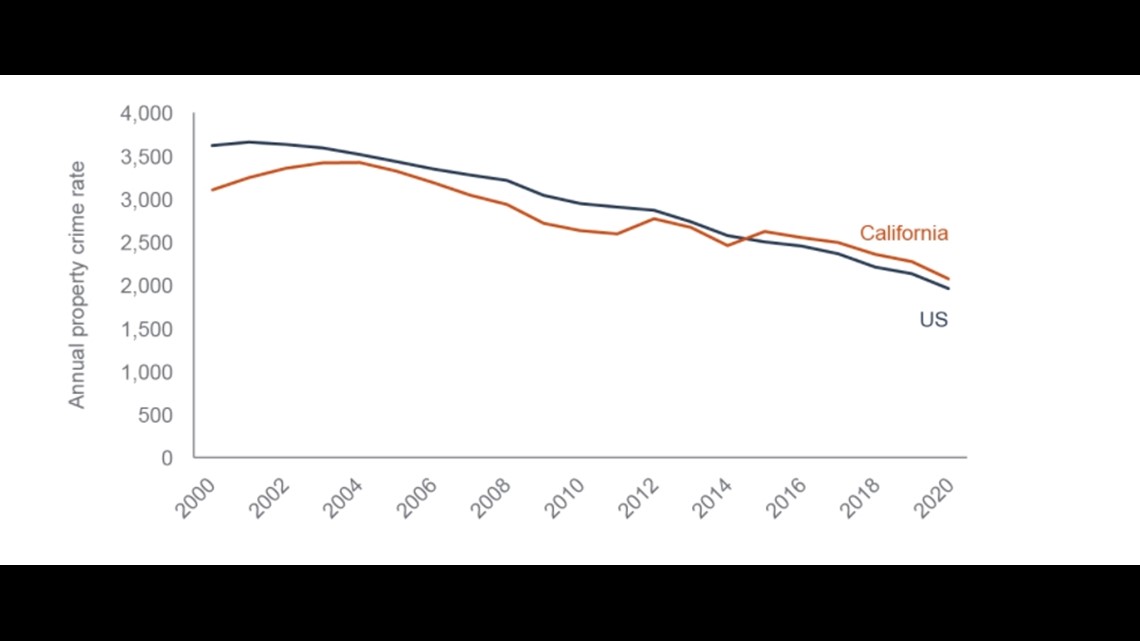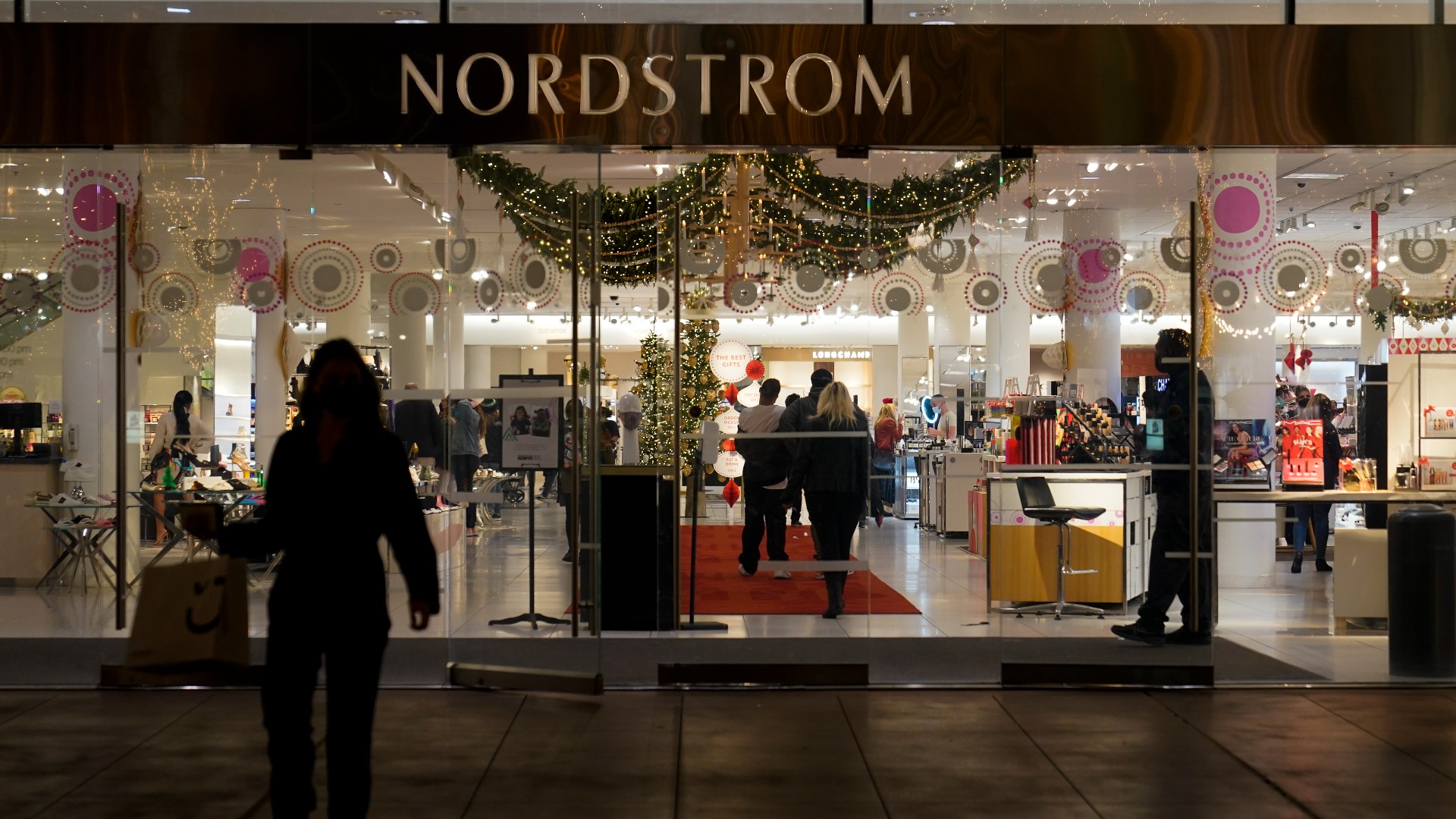SACRAMENTO, Calif. — California's legislative session just started back up this month, and Proposition 47 is once again in the spotlight. It’s what voters passed in 2014 to make retail theft a misdemeanor when someone steals anything below $950.
It’s important to note that since voters approved this in 2014, it’ll ultimately still be up to the voters to decide if any changes are made. If the legislature passes any bills, the people will vote on them again.
Assemblymember Jim Patterson (R-Fresno) introduced AB 1599 to overturn much of what’s in Proposition 47.
"I think that the people of California, at least in the area in Central California I represent, are -- they’re just fed up with it," Patterson said. "They know that the crime spikes are real."
No statewide 2021 numbers are in yet, but the Public Policy Institute of California reports that, overall, property theft has steadily declined over the last 20 years. However, the PPIC does link Prop 47 to temporary increases in some crimes after the law was enacted.


Data from the California Department of Justice also shows property theft overall decreased since 2014.
“I don't know why people are buying into this fallacy. I'm going to explain it in as direct terms as I know how," Patterson said. "When you take an otherwise felony activity and you turn it into a misdemeanor, it is no longer counted in the crime statistics.”
The California Department of Justice (CDOJ) does record larceny-theft.
In fact, it says since Prop 47 was passed the CDOJ “decided to include total larceny-theft crime in the property crime category regardless of value.”
"I think that they (voters) were sold a bill of goods," he said. "I think they've made an inaccurate choice, and I think the consequences are right in front of us."
Attorney General Rob Bonta declined an interview for this story, but his office sent a statement saying “California law is clear: Organized retail theft is a felony. Prop. 47 doesn't change that.”
"We have more serious crimes that are now becoming more prevalent in California involving murder and other serious types of issues," Lynn Reaser said, "But incentives play a big part."
Chief economist at Point Loma Nazarene University Lynn Reaser said even though the National Retail Federation puts losses at .07% of total sales, she is on board with repealing it or reducing the threshold.
“Given the low-profit margins and the struggle that retailers are facing now, even small amounts amount to large losses for, particularly, our small mom and pop shops," she said.
University of San Diego economics professor Alan Gin echoed the same thoughts.
"You have to draw a fine line between, you know, not stigmatizing somebody for the rest of their life by making it a really serious crime," Gin said, "But still having enough deterrent then to dissuade people then from engaging in this activity."
California is not unique. Most other states in the U.S put their felony threshold at $1,000 or more.
Some of the other bills in place are AB1597, which makes the punishment for repeat shoplifters stricter, and another which was introduced by a Democrat would bring the threshold back down to $400 instead of $950.
WATCH ALSO:



















